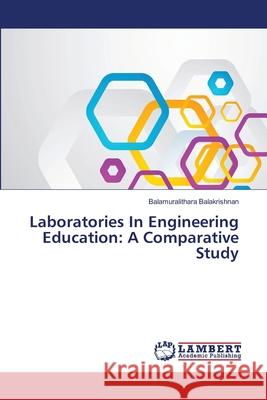Laboratories In Engineering Education: A Comparative Study » książka
Laboratories In Engineering Education: A Comparative Study
ISBN-13: 9783659413803 / Angielski / Miękka / 2013 / 188 str.
Over the years, rapid development in computer technology has engendered simulation-based laboratory(lab) in addition to the traditional real (physical) lab. Many higher education institutions adopt simulation lab, replacing some existing physical lab experiments. The creation of new systems for conducting engineering lab activities has raised concerns among educators on the merits and shortcomings of both physical and simulation laboratories. Many arguments have been raised on the differences of both labs. In this book, we discuss the current trends and key issues in engineering laboratories including remote lab.We also investigating the effectiveness of real and simulation labs from students' perspectives on their experience conducting both laboratories exercises. Specific suggestions to develop and design engineering laboratory education were proposed, which are deemed to be useful to educators and researchers who are working on engineering laboratory education and design.
Over the years, rapid development in computer technology has engendered simulation-based laboratory(lab) in addition to the traditional real (physical) lab. Many higher education institutions adopt simulation lab, replacing some existing physical lab experiments. The creation of new systems for conducting engineering lab activities has raised concerns among educators on the merits and shortcomings of both physical and simulation laboratories. Many arguments have been raised on the differences of both labs. In this book, we discuss the current trends and key issues in engineering laboratories including remote lab.We also investigating the effectiveness of real and simulation labs from students perspectives on their experience conducting both laboratories exercises. Specific suggestions to develop and design engineering laboratory education were proposed, which are deemed to be useful to educators and researchers who are working on engineering laboratory education and design.











